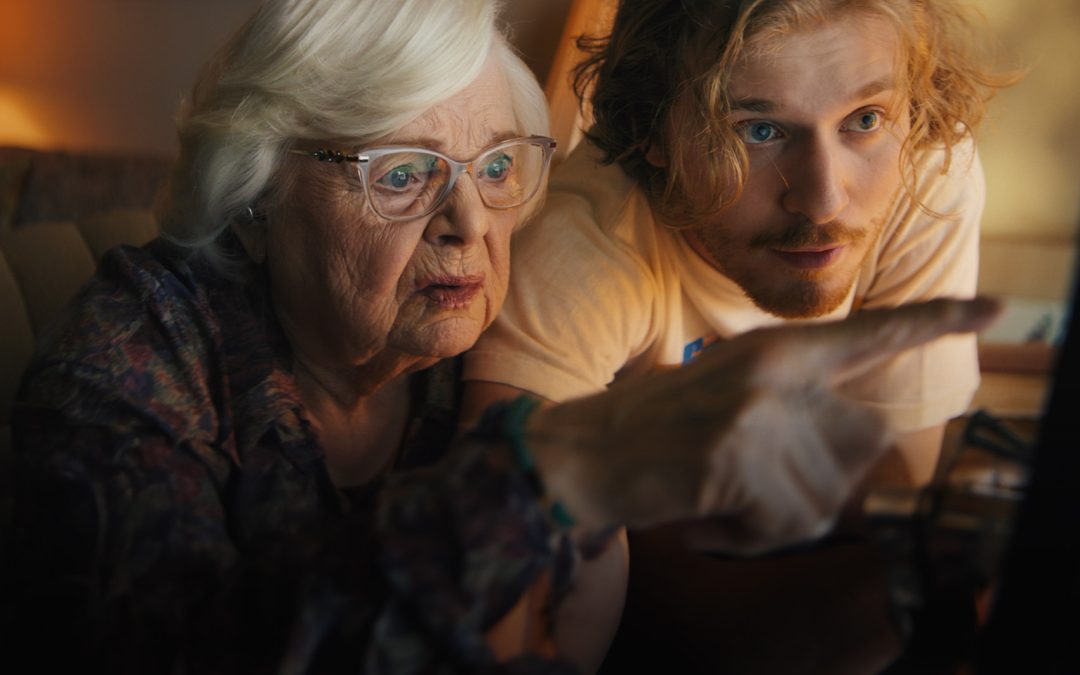Now that November is here, it’s time for me to start thinking about my 2024 UFCA ballot, and to start catching up on some movies I’ve missed along the way. Over the last few weeks, in addition to covering new releases like “Here” and “Heretic,” I’ve been working through a list of “to watch” titles. Here is my first round of reviews:
Escape From Germany (PG)
The latest effort from Utah filmmaker TC Christensen follows the true story of a group of missionaries as they evacuate Germany prior to the outbreak of World War II. The focus of the film is on Elder Seibold (Paul Wuthrich), the missionary charged with contacting dozens of missionaries scattered throughout the country. The hitch? There’s no text messaging in 1939.
Like most “missionary movies,” “Escape From Germany” got me thinking of my own experience sharing the Gospel, and in this case I thought of those tasks I was given despite a little hesitation on my part. Elder Seibold is anything but enthusiastic about his charge—he’s clearly “trunky” in the parlance of contemporary missionaries—and the film traces a nice character arc from reluctance to quiet determination.
Christensen’s film also makes the most of a limited budget, shooting around Budapest Hungary in its effort to recreate pre-war Europe. There are places where you can see the shortcuts, but at most times the scope and scale of the film belies those budgetary limitations. In fact, at one point Christensen provides one of the my most memorable images of the year. For one creative shot, the silhouetted figures of the Elders are lined up against a bank of fog and smoke while an angry conductor throws their baggage off the back of a train.
Christensen has made a career out of documenting the real-life miracles that aren’t as well known in the annals of church history, and fans of his films will enjoy adding “Escape From Germany” to their lists.
Music by John Williams (PG)
You’d have to go out of your way to make a bad documentary about John Williams. As long as you secured the rights to his music, and managed to include a few choice film clips from the movies he’s scored, you’re guaranteed nothing less than a tour de force of a nostalgia trip for anyone who has spent any decent time watching movies in the last 50 years.
Luckily, “Music by John Williams,” a new documentary streaming on Disney+, does a lot more than throw up a handful of film clips and soundtrack cues. In fact, I didn’t realize how little I knew of Williams’s story until I sat down with Laurent Bouzereau’s film.
Bouzereau’s effort isn’t especially inventive, but in this case it doesn’t have to be. What the director does is provide a wealth of content: interviews with numerous industry veterans, from Steven Spielberg to violinist Itzhak Perlman, behind the scenes footage of Williams at work, photographs of him as a child (which are a little jarring when you realize your image of him has been pretty much static since 1977), and even glimpses of his many, many music scores.
The film has plenty to teach even a lifelong fan like myself: his father was a successful drummer, his first wife was a successful actress, and one of his kids was in the band Toto (this might have been the biggest surprise of all).
But in spite of all the content, the real joy of “Music by John Williams” is exactly what you would expect it to be: the opportunity to spend 105 minutes enjoying a highlight reel of your favorite movies, and the incredible music that brought them to life. At one point George Lucas declares that half of “Star Wars” is John Williams, and I don’t think any of us would disagree.
Thelma (PG-13)
I might have missed “Thelma” altogether if I hadn’t been looking a little closer at the endless list of options scrolling by on my Xfinity account one evening. And that would have been a pity.
“Thelma” is a heartfelt and quirky exploration of a scenario that any adult with older parents fears: what if one of those phone scammers gets to my mother? In Josh Margolin’s film, the titular 90-something grandmother (played perfectly by June Squibb) gets tricked out of $10,000 when a phone scammer calls pretending to be her grandson Daniel (Fred Hechinger). But rather than lick her wounds, Thelma sets out to get her money back.
What happens next involves a borrowed Jazzy, a stolen revolver, and a lowercase-f friend named Ben (played by Richard “Shaft” Roundtree, far removed from his ‘70s Blaxploitation heyday). The odds are against Thelma, and her daughter and son-in-law (Parker Posey and Clark Gregg) are beside themselves with panic.
Margolin’s effort is a low-key heart warmer that pushes its bend-but-don’t-break plot to a perfect happy place, and Squibb is the kind of actress who can make any character worth cheering for. But the Secret MVP here is Hechinger, whose character gets a meaningful and relatable shot at redemption.
Martha (R)
As a kid in the late 1980s, birthday and Christmas shopping for my mom was easy. Option #1 was to grab one of dozens of Martha Stewart cookbooks; Option #2 was to grab a Martha Stewart video. For a few years my mom used to re-watch Stewart videos the way I re-watch old episodes of Top Gear now; her voice—very proper and a touch nasal—was a familiar refrain around the house as she described the ins and outs of cooking and entertaining.
The new Netflix documentary “Martha” fills in Stewart’s story from before and after that period, and while it generally celebrates its subject, it creates a unique portrait that contrasts the turbulent life and personality of the “original influencer” against the perfect image portrayed by her expansive media empire.
Overall, “Martha” follows the traditional rise-fall-rise again trajectory of most celebrity documentaries, and sure enough, 2020s Stewart is still culturally relevant thanks to social media. R.J. Cutler’s documentary checks most of the necessary boxes—and it helps to have generous involvement from Stewart herself, who doesn’t try to hide her agitation when asked about certain topics such as her troubled relationships and the insider trading scandal that landed her in prison. But in general, “Martha” feels more concerned with telling the A to Z story in its entirety more than answering the compelling questions, IE, why do so many people love to hate this woman who seems to go out of her way to make perfection feel attainable?
Maybe because it isn’t?

